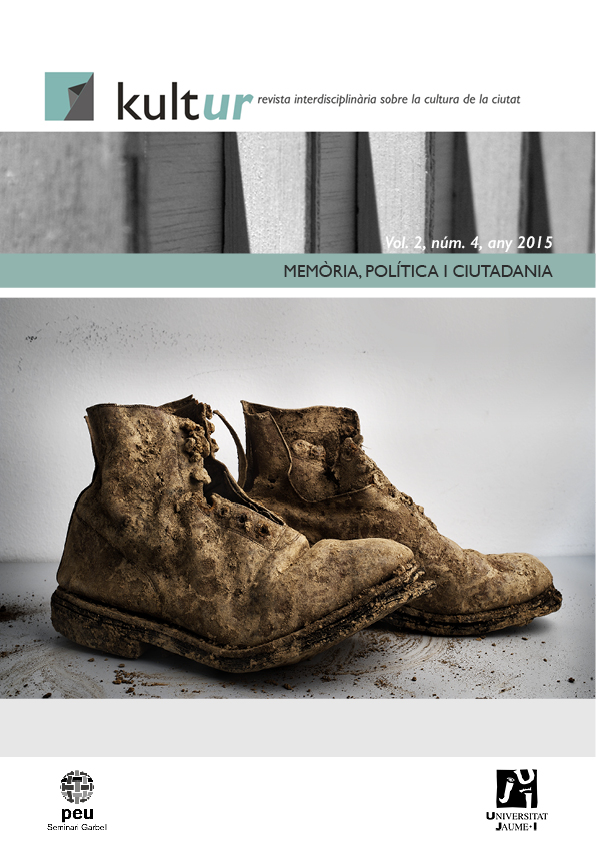kult-ur, una revista dedicada a reflexionar sobre la cultura de la ciutat, aborda en aquest volum la relació entre memòria, política i ciutadania considerant que les polítiques anamnètiques s'exerceixen en la coexistència a la ciutat. És a dir, les polítiques de la memòria s'emplacen originàriament en l'existència conciutadana, que es diferencia de la manera imperial d'exercir el domini polític. La memòria s'exerceix en aquest emplaçament ciutadà fonamental que és la ciutat, i per això Hannah Arendt defineix a la polis com «una mena de record organitzat» (2003: 220). La memòria, en ser fugaç i passatgera, necessita d'espais institucionals consolidats perquè duri més enllà de l'acte de la seva execució, i en aquest espai estable els actors polítics que l'exerceixen poden ser vistos i escoltats en públic. Però també fer memòria implica abordar el passat des de «l'instant d'un perill» (Benjamin, 2008: 307), revelant les seves zones fosques i lluitant contra els que volen imposar que els morts, morts estan (Reyes Mate, 2009: 115). [...]
Els diferents treballs que integren aquest volum busquen entaular noves discussions sobre la relació entre memòria, política i ciutadania. En concret, aborda les tensions que es produeixen entre els processos d'institucionalització i les polèmiques en la construcció de la memòria a l'Argentina i Espanya. [...]
Guillermo Pereyra, Cood. Àgora
DOI: https://doi.org/10.6035/Kult-ur.2015.2.4
Publicades: 2015-12-06


